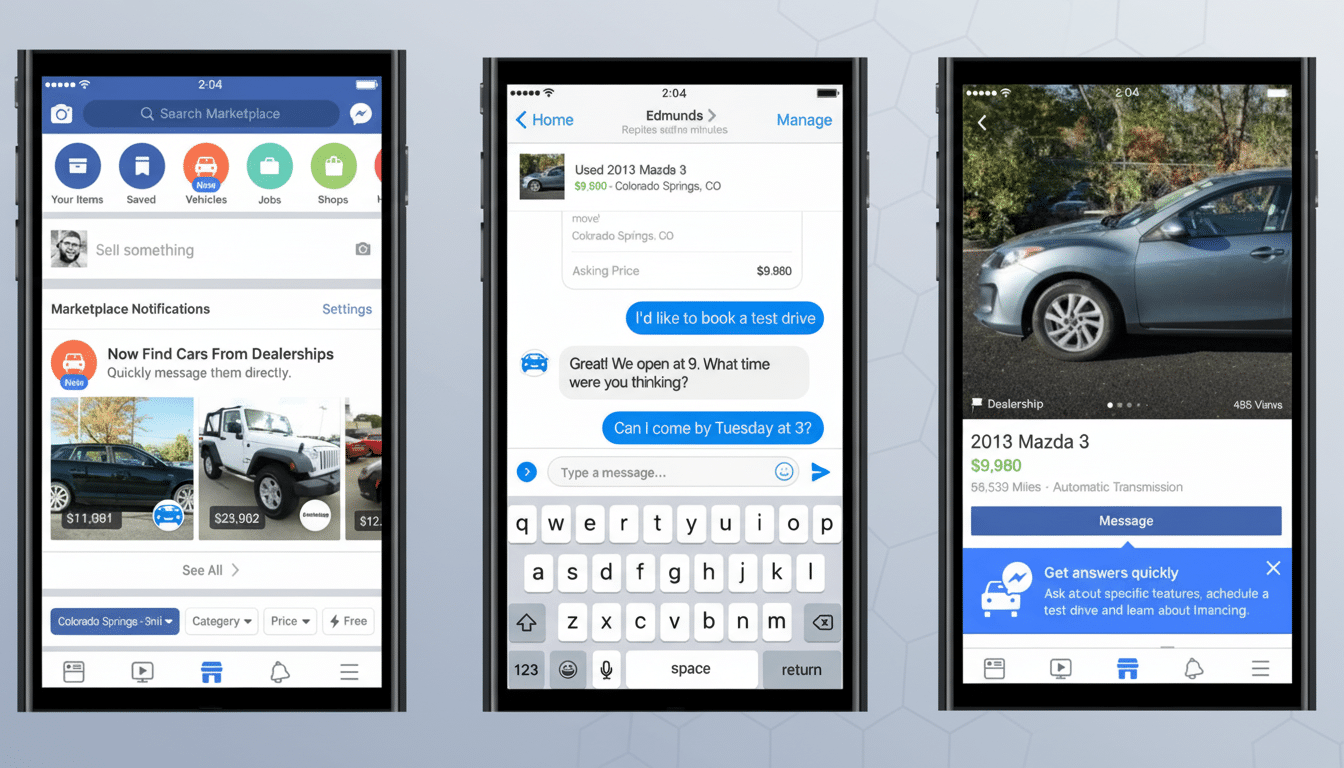Facebook is bringing back job listings for its Marketplace platform and across both groups and pages, aiming to make the process part of planning local, entry-level or rising-star employment among young adults. The move brings back a feature that Meta phased out in 2023, and lands at a time when automation and artificial intelligence are changing how companies go about sourcing and staffing early-career roles.
Listings are to feature part-time, trade and service jobs; appear for anyone 18 or older, the company says; and permit job seekers to message businesses on Messenger to ask them questions or arrange interviews.

Suggestions will be based on user behavior on the platform, effectively bringing algorithmic matchmaking to jobs around the neighborhood that once were handled by sandwich boards and window flyers.
What’s new in Marketplace jobs and who it targets
Unlike corporate recruiting hubs, Marketplace leans local: restaurants, retail, logistics depots, salons and contractors — the types of businesses that together provide many first-timers their paychecks. Job seekers would be able to search broadly or filter jobs by type (for example, full-time or part-time), including proximity to places such as a city, state or ZIP code; easily apply for those roles and manage those applications; register for in-person interviews and connect with hiring managers on Messenger instantly.
For small businesses, the pitch is speed and scope. A Marketplace post can be boosted within the relevant community Group or a business Page where it receives comments, recommendations and applications all in one thread. Paid boosting and targeting tools will likely follow; Facebook already makes money on similar local listings for rentals and services.
Why AI is reshaping entry-level hiring right now
AI adoption is no exception, with entry-level hiring emerging as the first pressure point. Companies are using automation to handle routine work in customer support, basic research, scheduling, transcription and first-draft writing — the very responsibilities that used to require junior staff. According to findings from the World Economic Forum’s Future of Jobs Report, this reshuffle is happening now, and roles are being rapidly redefined by AI and analytics in firms, leading to millions of positions displaced or redesigned in the coming decade.
Academic work from Stanford and elsewhere links exposure to AI with changes in the composition of tasks and a pullback in posting for roles heavy on repeatable, codifiable work. And business leaders — from startup founders to lab CEOs — have cautioned that early-career jobs are the most at risk because their tasks are the simplest to automate. In that light, a low-friction channel for local hiring resembles less and less of a throwback, and more of an insurance policy against the deskilling of entry-level pathways.
And the macro picture validates the worry: According to historical data from the U.S. Bureau of Labor Statistics, unemployment among workers aged 16 to 24 typically runs at about twice the national average.

When the market cools or technology mashes jobs together, entry-level job candidates tend to feel it first and suffer longer.
How Facebook’s Marketplace jobs compare with rivals
Facebook’s advantage is distribution. Local employers already use Pages and Groups to post scheduling, promotions and calls for applicants. Folding job listings back into that fabric could undermine the rationale for maintaining discrete accounts on national boards, which exist for more traditional walk-in style roles. It also pushes the incumbents — LinkedIn for professional tracks, Indeed and ZipRecruiter when it comes to broad search, and Handshake regarding campus-to-career pipelines — to defend what should be a strategic entry-level edge.
And now we have an arms race in AI matching. Main platforms advertise models that assess for skills rather than keywords, but the goal is to minimize ghosting and mismatches. Facebook says that it will personalize recommendations based on your activity, which is a technique we are familiar with in its feed and Marketplace but that could also mean the platform shows you some locally available jobs even if you weren’t actively looking.
Trust and safety questions for social media job ads
Marketplace’s size is both a strength and a risk. Consumer protection organizations have warned about job scams on social media time and again, from fake “work-from-home” schemes to identity theft cons that harvest confidential documents during a fake “onboarding.” But if Facebook wants teens and twenty-somethings to treat it as a first stop for work, it will need visible verification, clear pay transparency prompts and fast takedowns for sketchy posts.
Employers will, in turn, look for tools that efficiently help them screen without bias. AI résumé filters sometimes weed out qualified candidates for no good reason; regulators and civil-rights advocates have called for guardrails around automated hiring. A clear handoff from Messenger chat to formal application flows — and auditability for employers — will be crucial if this relaunch is going to be anything more than a job board.
What to watch next as Facebook reopens Marketplace jobs
Three signs will indicate if the reboot takes:
- Quality: Are listings consistently fresh and local, or do spam and stale posts elbow out real leads?
- Measurement: Will Facebook release metrics on filled roles and time-to-hire that will drive small businesses to spend?
- Integration: Expect experiments to tie training content, certifications or short courses to job postings (helping candidates prove skills, as AI raises the bar for productivity).
In an algorithm-infused labor market in which applicants get screened by machine before a human ever enters the process, a plain old message thread with a local manager may have been a welcome throwback. If Facebook can make the interaction safe, transparent and quick, the reintroduction of its job board may hold out to entry-level seekers something that an AI wave washing over them has taken away: a chance.

